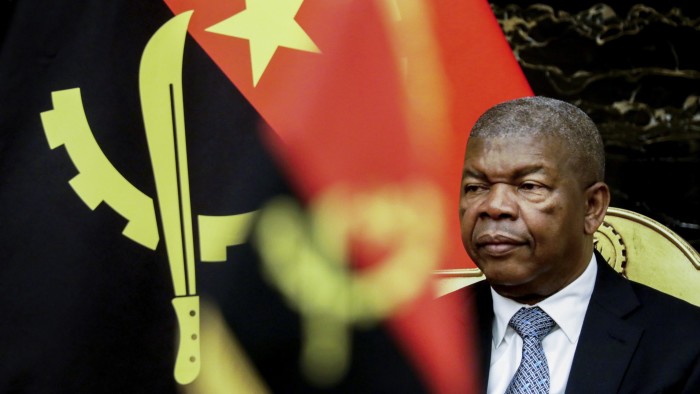Unlock the Editor’s Digest for free
Roula Khalaf, Editor of the FT, selects her favourite stories in this weekly newsletter.
You are one lender, among a group of lenders, who, at some point in time, extended a syndicated loan of mysterious purpose and unknown quantum to the oil-rich but currently quite broke African nation of Angola.
At some point later on, you and all the other lenders ended up subject to international sanctions — whoops! — and the loan imploded in some way.
At some point recently, you accused Angola of a sovereign default over the fiasco, in an arbitration filed . . . somewhere, but not in public registries at the World Bank or UN.
Who are you?
We know you’re out there, because Angola recently used a prospectus for the issuance of nearly $2bn in bonds to bury the rather unfortunate detail that someone has accused the country of default.
Other defaults
Angola is a party to an arbitration in relation to a syndicated facility entered into with certain lenders. The facility was performed in accordance with its terms until each of the lenders became subject to international sanctions, the effect of which was to restrict the parties’ ability to perform the facility in accordance with its terms. One lender has recently commenced arbitral proceedings claiming that an event of default has occurred and that it is entitled to full repayment of its portion of the loan. There is no evidence that that lender has the required majority lender consent of 66 2/3rds and therefore, any demand or action taken by that lender in its own name contravenes the terms of the loan documentation. As such, Angola denies that the lender is entitled to accelerate the loan or pursue the claim and intends to defend the arbitration.
This is possibly the first case of sanctions causing a sovereign default by a third, unsanctioned country. It matters. Even if Angola denies that this loan can be accelerated, there is the risk of cross-acceleration in other Angolan debts, and investors, credit rating agencies, and others should know the details.
It also matters because Angola is broke. More than a quarter of state revenues went to servicing debt last year, Fitch estimates.
So broke is Angola that these bonds were actually issued as collateral for a $1bn loan from JPMorgan. By transferring the bonds, which were issued with a yield of about 11 per cent, Angola won’t have to count them as part of its external debt. The country’s last proper eurobond sale was in 2022.
Which all makes it a shame that the above disclosure is a parody of what debt transparency should look like. We’re told only just enough to indicate an iceberg of sovereign debt oddity lies just below the surface. It sticks out all the more because the prospectus otherwise does list and name many of Angola’s lenders, from Chinese policy banks to western institutions.
We are to know Angola has a holdout creditor. But not their name, how much they want, nor where they have brought legal action. We do not know why the lender came under sanctions (nor whose sanctions), nor whether they are for example an official creditor, with state backing.
We also do not know if this might be the administrator or liquidator of a sanctioned entity attempting to recover assets.
It isn’t even spelt out if Angola stopped paying the sanctions-hit loan — we just get some circumlocution about restrictions on “the parties’ ability to perform the facility in accordance with its terms” — although it seems likely that this is what triggered the claim.
We contacted Vera Daves, Angola’s finance minister, for comment, but she didn’t respond.
We do have some guesses. There aren’t many countries that are targeted by so many sanctions that whole groups of lenders can be affected, and that also have investment ties with Angola.
But it’s proving very hard to pin down. And given this is an information black hole in the middle of a prospectus for bonds listed on the London market, this seems suboptimal.
Serious financial names are attached to this Angolan bond prospectus. Deutsche Bank was arranger and with Citigroup, a dealer. The bonds, as mentioned, will be security for a JPMorgan loan. We understand Norton Rose Fulbright gave legal advice to Angola on the bond issue, but the firm declined to comment on this role on the record.
Almost a decade ago, Mozambique revealed the hidden debts at the heart of the country’s $2bn ‘tuna bond’ saga. This led to some wringing of hands about how easily the institutions of global finance accepted opacity, lack of disclosure, and ultimately corruption risks in one of the world’s poorest nations.
We don’t learn.
Read the full article here

